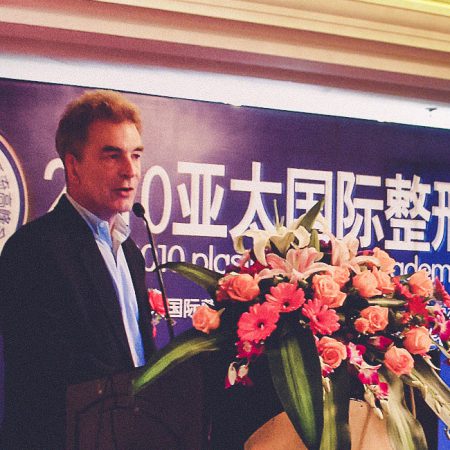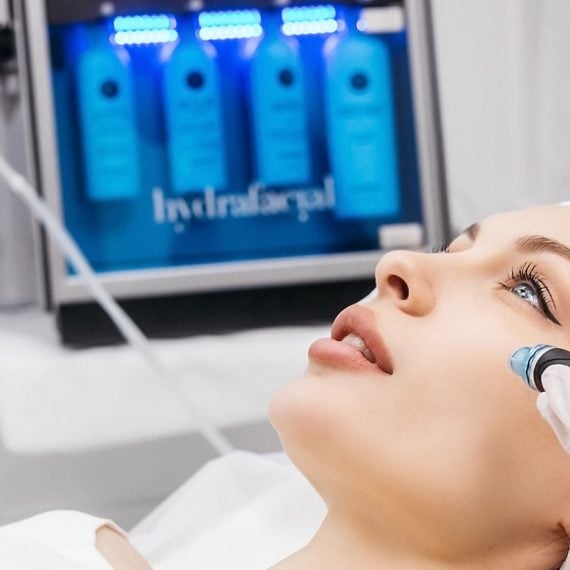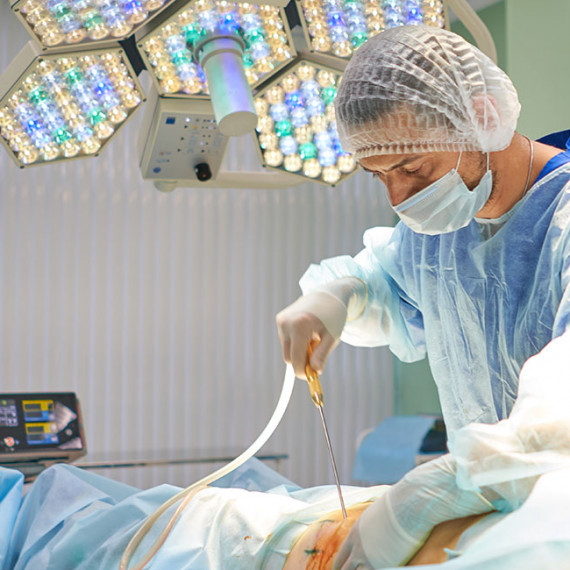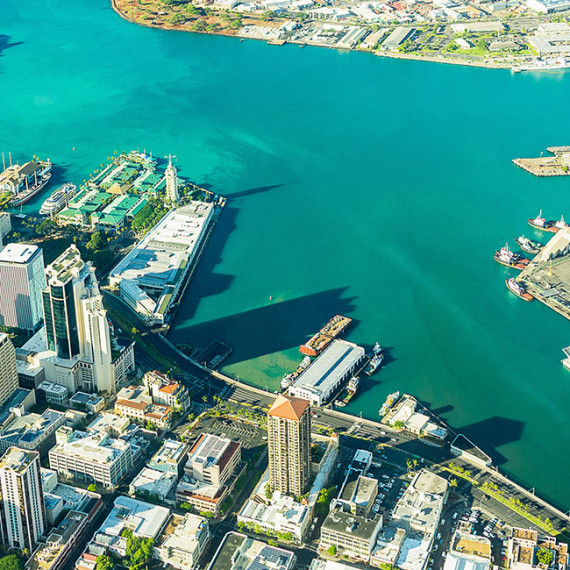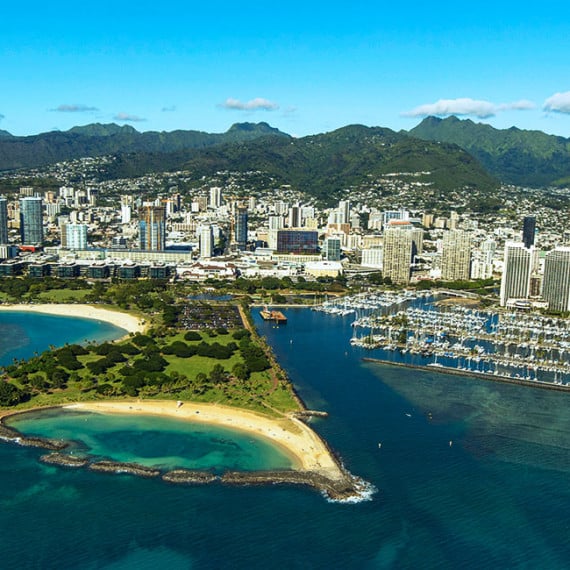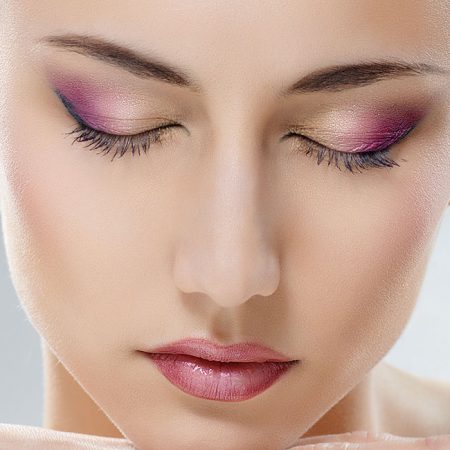Dr. Pasquale is one of the few plastic surgeons in the world who has not only completed a full residency in plastic surgery but has also earned a 2-year training certificate specifically in the subspecialty of cosmetic surgery. He earned this certificate in Manhattan N.Y., at New York University-Downtown Hospital, under some of New York’s leading cosmetic and plastic surgeons. In addition to his training in plastic surgery, Dr. Pasquale is an osteopathic physician and surgeon (D.O.), which means he has had additional training in manual medicine techniques and alternate medicine. This holistic medical education has given him a deeper understanding of medicine and knowledge about newer concepts of health.
Dr. Pasquale States:
First and foremost as a surgeon, I am required to apply my rational surgical skills using sound science, good technique, and meticulous attention to detail to every case. As a plastic surgeon, I have developed the understanding to seek creative solutions to extremely complex problems, such as a paralyzed face or limb, with science. As an Osteopathic Surgeon I seek to understand the mind-body relationship of an individual patient and the psychology that is at work. As a cosmetic surgeon I always seek to treat with an artistic appreciation of form, beauty and attractiveness. As for my patients, I strive to never forget that it is an honor and privilege to gain their trust and do all that I can to keep that trust sacred.
Plastic Surgery is a specialty of art, creation, psychology
and true considerate human understanding.
Dr. Pasquale as Teacher
Dr. Michael Pasquale lectures about his techniques world wide from China to Europe on breast cosmetic surgery, buttock enlargement and has given many hands on courses regarding his face lift lift techniques. His course on the treatment of complications of breast augmentation was well received in China and attended by over 200 eager Chinese Plastic Surgeons.
Each year students from China, Korea, Japan, Europe and as far away as Nigeria Africa have come to Hawaii to learn from Dr. Pasquale. As an respected instructor he is well known by many abroad as a willing teacher and expert.
Dr. Pasquale as rated by his patients
Dr. Michael Pasquale is one of Hawaii’s top cosmetic plastic surgeons in Hawaii and the world. His unique combination of education and experience give him special qualifications and insight into cosmetic plastic surgery.
Dr. Michael Pasquale is really a very easy Plastic Surgeon to speak with, down to earth and is well known for his no nonsense approach. Always respecting the patients desires, he sorts out the fantasy and leads you to the facts. Some plastic surgeons are about the fluff without the substance, others may tell you what you want to hear. Yet Dr. Pasquale is well known with his direct and realistic approach. You will be spending a lot of time and money with your plastic surgeon and you deserve the best science and experience. He wants his patients educated and truly understand what is possible but also what is not.
If your interested in improving your appearance, correct the signs of aging or simply want to know the possibilities, give us a call and learn first hand.
Finding the Best Plastic Surgeons in Hawaii
Ask any plastic surgeon – who are the top three plastic surgeons in Hawaii, and he will have trouble naming the other two. Of course any surgeon (especially a plastic surgeon) will tell you he or she is the best, and it’s arguable they should have that attitude to some extent.
Determining who is the top plastic surgeon is much like trying to figure out your favorite flavor of ice cream, most are good. However, there may be differences and these should be considered as more of personal preference as opposed to an absolute.
Doctor Reputation
Hawaii is a very small, very competitive area for just about anything, and word travels very fast. Any plastic surgeon who has owned a clinic here for more than a few years is most likely very competent, highly trained and skillful. Reputations, good or bad, tend to propogate rather quickly in Hawaii compared to most any other mainland state or large capital cities.
Word of Mouth
Word of mouth can be a great tool in Hawaii, and odds are you have a friend, auntie, cousin or classmate who has been there or done that. Someone who has personally interacted with a surgeon can tell you firsthand what they thought, how they connected, what their overall experience and result was. I would encourage everyone to listen to firsthand experiences, but realize everyone has their own opinions.
Yelp and Ratings Websites
YELP and many other ratings sites and directories must be taken with an oftentimes large grain of salt. Plastic surgeons have become one of the most advantageous and profitable businesses for patients (or directories) to extort or blackmail. I wouldn’t say that YELP is entirely toxic, but as is with everything, there are always a few bad apples.
Some plastic surgeons have perfect ratings, which may be suspect as well and may reflect that something other than honest reviews are afloat. The Federal trade commission caught one company faking 100s of reviews on a well advertised face lift procedure and fined them $300,0000. My point is even the so called Top Plastic Surgeon will have an occasional negative review and if not be suspect.
Doctor Ratings & Directories
The doctor rating websites are generally trustworthy and impartial, but unfortunately not all of them. Some of these websites won’t allow a Doctor to be listed in their directory unless they sign a contract to promise to use their product and nobody else’s. They thereby boost and promote their exclusive surgeons via their brand and attempt to portray the others as lacking. Seems a bit unfair after all.
Trendy or Superficial Choices
Some people choose their plastic surgeons based on who is trending, or who is hot on Instagram. Popularity ebbs and flows with just about everything in this world and in the Kardashian era in which we live, it should be painfully obvious to everyone that fame isn’t always warranted or deserved. Look for substance, human connection and don’t follow the rest of the sheep.
Do You Specialize?
Also not every plastic surgeon is the top plastic surgeon in everything. Some super specialize in eyelids for example. Most cosmetic plastic surgeons are good generalist in body, breast and facial procedures. So when your considering for example perhaps an eyelids procedure, make sure that the top plastic surgeon in Breast Augmentation does eyelids as well.
Comfort & Communication
Also extremely important is just feeling comfortable with your plastic surgeon. Certainly he or she may have a lot of marketing and the most fabulous office and the most glamorous staff, but when all that is sorted out its the surgeon, his or her skill and ability to communicate with you. After all, you need honest answers with regard to the money you will be spending. Your trusting your body to that surgeon. The glitz is always nice, but remember what is most important – its your body.
Plastic surgeons in Hawaii like elsewhere are highly trained individuals with years and years of study in the field. There are screening processes along the way to weed out bad ones. So its a very difficult task to look for the number one when there are so many that are very good. How do you pick out the best from the best ?
Here at Dr. Pasquale’s clinic we understand these issues and do what it takes to be the top plastic surgeon for you. This is careful balance of skill, personality and experience. It takes a staff that works as a team and a plastic surgeon that puts your interest before his. This is what we do and why we have been successful for over 25 years.
What is Osteopathic Medicine
D.O. & M.D. titles are essentially the same. A Doctor of Osteopathic Medicine has the equivalent training as a Medical Doctor
Osteopathic medicine in the U.S. got its start in the late 1800s. Founded by Dr. Andrew Taylor Still, who established the American School of Osteopathy in Kirksville, Missouri in 1892, osteopathic medicine is governed by two regulatory bodies: the American Osteopathic Association (AOA) and the American Colleges of Osteopathic Medicine (ACOM). There are currently nineteen, mostly private, colleges of osteopathic medicine; when you graduate, one receives the D.O. (Doctor of Osteopathic Medicine) degree.
History of Osteopathic Medicine
Until fairly recently, osteopathy’s insistence on preventive care, communication with the patient, and a holistic approach to health were considered radical. Now, much of what osteopathy has always espoused is rapidly becoming part of all medical training. The major difference today between osteopathic (D.O.) and allopathic training (M.D.) is that osteopaths are taught an additional modality of treatment called manipulation (not to be confused with chiropractic manipulation, which has an entirely different system of education and is not recognized as a fully licensed medical degree). Osteopathic Physicians are fully recognized medical degree’s.
The osteopathic philosophy position is that there is a unity between a living organism’s anatomy and physiology. Osteopathic science includes “the behavioral, chemical, physical, spiritual, and biological knowledge related to the establishment and maintenance of health as well as the prevention and alleviation of disease.
Osteopathic concepts emphasize the following principles:
- The human being is a dynamic unit of function.
- The body possesses self-regulatory mechanisms that are self-healing in nature.
- Structure and function are interrelated at all levels.
- Rational treatment is based on these principles.
- What is Allopathic Medicine?
- Allopathic training, which confers the M.D., is by far the most widely available and most recognized type of medical training.
Like D.O. schools (Doctor of Osteopathic Medicine), allopathic programs make you focus your first two years on the basic sciences needed to practice medicine. In recent years, though, med schools have experimented with different ways of going through the material, resulting in programs that may teach systems- or case-based science in small, independently directed study groups, rather than separate disciplines delivered in a lecture hall.
Most schools are making a concerted effort to get students together with patients much earlier, too. In the past, med students didn’t come in contact with any actual sick people until they’d already been through two years of school.
The last two years of medical school are mainly spent doing clinical rotations. Even if you’re sure that your life’s calling is plastic surgery, you’ll have to do your pediatrics rotation. Most medical students really enjoy having a chance to delve into the various specialties, although you are usually rotated out of an area a few minutes after you learn enough to be useful.
Schedule a Consultation with Dr. Michael A. Pasquale
Consultations allow a plastic surgeon to evaluate you and answer all the important questions that are impossible to answer otherwise, such as surgery options and surgery prices etc, All consultations are complementary and by appointment only.
Compare Dr. Pasquale’s Training & Credentials
Click on text below to find out more:
YES approved plastic surgery residency trained 2 years
Additional Fellowship Training
1 Year Microsurgery and Hand
Basic Training In Surgery
5 years General surgery
Added Certificates
2 Year Certificate – Cosmetic surgery
Location Of Training
Manhattan, New York and Virginia
On Hospital Staff with plastic surgery privelges
Many years on staff in Hawaii
Current and Past Lectures
Being Updated
Open to Alternate Health/Patient Directed Care
Yes
Total Years of Experience in Surgery
28 years
Has both Non-surgical alternatives and traditional surgery available
YES many newer non-surgical alternatives
Examiner for Plastic Surgery Boards to certify other plastic surgeons
YES
